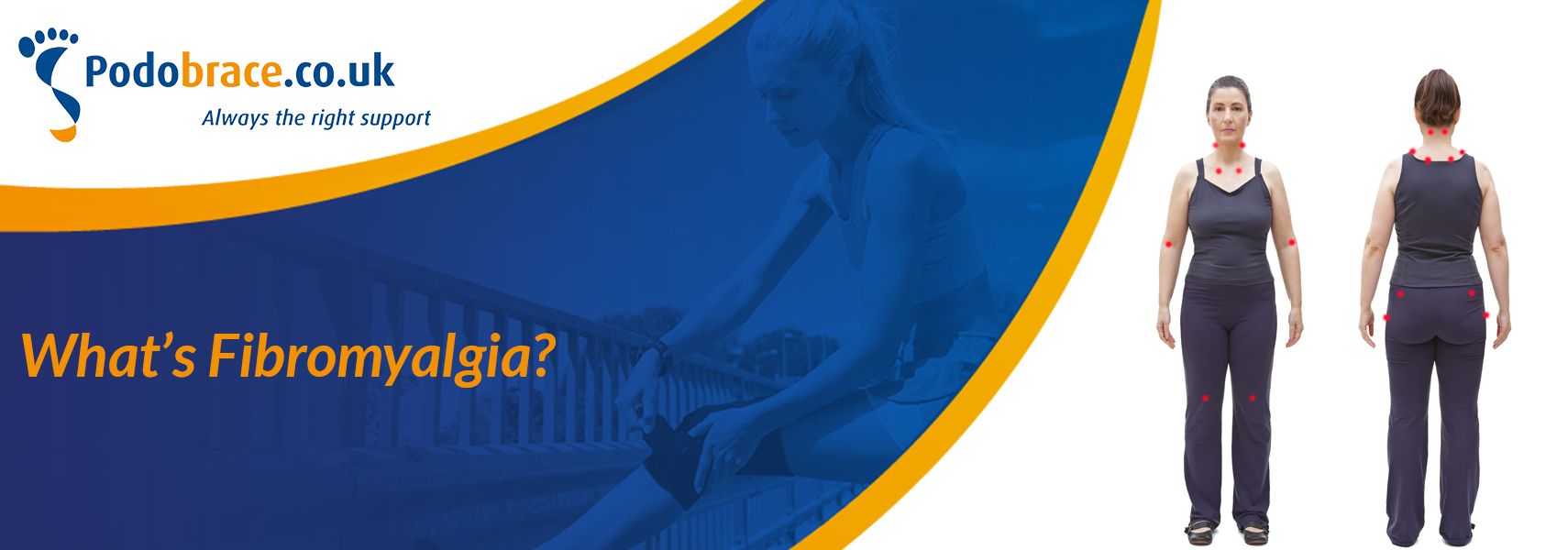Fibromyalgia is a condition that affects millions of people worldwide. Fibromyalgia is a condition with which you experience chronic pain in your muscles and connective tissue. Besides the chronic complaints, there are also many alternating complaints. These alternating complaints are fatigue, stiffness, mood swings and sleep disorders.
How does Fibromyalgia develop?
It is not yet entirely clear how Fibromyalgia arises; scientific research has not yet yielded much. Research has indicated that there may be a disturbance in the brain that alters blood flow or muscle tension. This influence can cause a person to continuously experience a feeling of muscle pain.
In addition to a disturbance within the brain, there are other theories that explain the cause of the condition. These theories focus on how certain stimuli are received and processed. According to research, the filter that processes stimuli from the outside world works differently in people with fibromyalgia.
Which complaints are experienced with Fibromyalgia?
Fibromyalgia is a condition where you mainly experience pain in your muscles and connective tissue, this pain can occur in many places. The most common places where the pain can be found are the neck, shoulders, back, sternum, pelvis and on the inside of the knee.
People with fibromyalgia often also experience a lot of stiffness. This includes not only morning stiffness, but also stiffness after standing or sitting for a longer period of time. After a longer period, patients also experience a rapid loss of strength; this loss of strength is particularly noticeable when making certain movements such as standing up.
In addition to stiffness and loss of strength, patients also experience prolonged fatigue, and they regularly wake up at night in pain. Finally, patients often experience mood swings, which can range from forgetfulness to depression. Other possible mood swings include anxiety, indecision, and difficulty concentrating.
In addition to the most common complaints, Fibromyalgia also has some other complaints. These are fairly general complaints that occur with several disorders. Below, we have listed the other complaints that may occur with Fibromyalgia:
- Headaches
- Abdominal pain/cramps
- Tingling sensation in the arms and/or legs
- Burning sensation in the skin
- Swollen fingers
- Swollen feeling in the arms and/or legs
Fibromyalgia is different for everyone, the symptoms can vary greatly from person to person. You might experience other symptoms than those listed above.
How is Fibromyalgia treated?
A treatment for Fibromyalgia does not currently exist, but there are various things you can do to reduce the pain. When you try to move a lot within your limits, this can help with the pain and stiffness. In addition, it is essential to get plenty of rest. Sufficient sleep ensures that the pain will not increase. There are also various medicines that may help with the symptoms of Fibromyalgia; these medicines are mainly painkillers.
The most commonly prescribed medicines are paracetamol (with codeine), tramadol and NSAIDs (for example, naproxen, ibuprofen or diclofenac). Wearing a brace can help alleviate pain because it supports the various joints. At Podobrace, we offer a wide range of neck braces, back braces, knee braces and other supportive products. These supportive products make life with Fibromyalgia much more bearable.
Tips on how to live with Fibromyalgia
There are many tips that can help reduce the symptoms of Fibromyalgia. These are small tips that may help make it a lot easier for you to live with Fibromyalgia. We have listed some tips below.
Avoid toxins
Toxins such as sugar, nicotine, caffeine and alcohol create a lot of metabolic waste, all of which the body must try to process alongside the toxins that are already present inside the body.
Ensure sufficient fluid intake
When you drink enough fluids, the body can process metabolic waste more easily. It is also recommended to drink 2 to 3 cups of nettle tea. It has been proven that nettle tea helps to reduce the complaints.
Reduce stress
If someone with Fibromyalgia suffers from a lot of stress, this can quickly make the symptoms worse. It is important that stress is avoided as much as possible, as stress affects not only the symptoms of Fibromyalgia but all organs.
Wear a brace
Wearing a brace supports the joints, this support provides pain relief. Podobrace offers many braces that may help with Fibromyalgia. For example, a knee support, shoulder support, wrist support, thumb support or back support.
Get enough sleep
During sleep, the body recovers and a growth hormone is produced. When suffering from Fibromyalgia, your sleep is often disturbed by pain, so it is essential to sleep in the right conditions. Think of a cool, dark room and a fixed sleep rhythm.
Stay moving
Keeping moving is essential when you suffer from Fibromyalgia. Low intensity exercise is one of the best treatments. Walking or swimming is an effective form that helps reduce pain, stiffness and stress.


Gladiator Sports Premium Lightweight Shoulder Support

Novamed Knee Support with Adjustable Hinges

Gladiator Sports Lightweight Ankle Support with Straps




